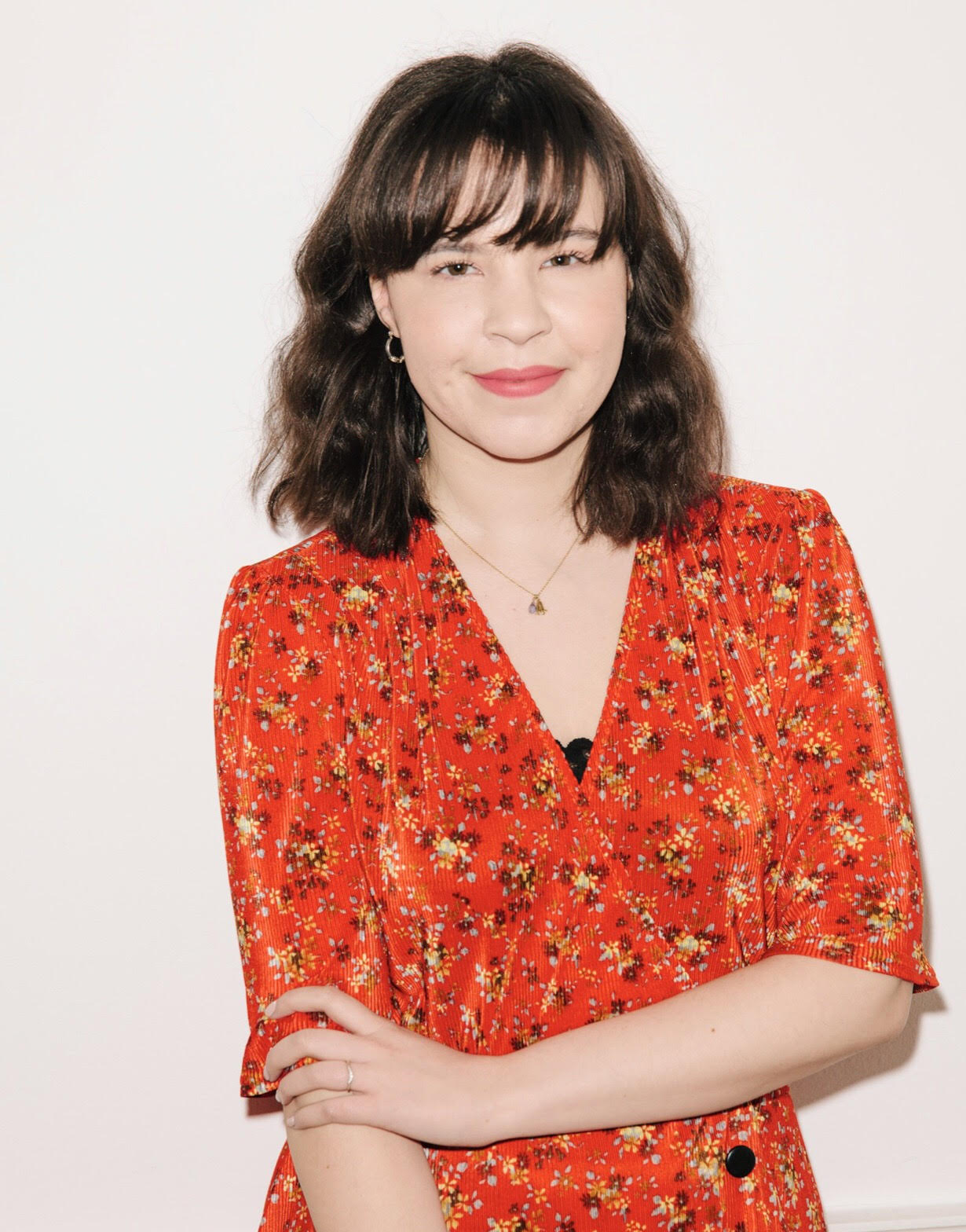It's Considered the Most Powerful Product in Skincare—These Are the 12 Best Retinol Serums
Retinol is one of the most recommended ingredients by skincare experts, but where should you start? These are the best retinol serums to shop now.

Grace Day
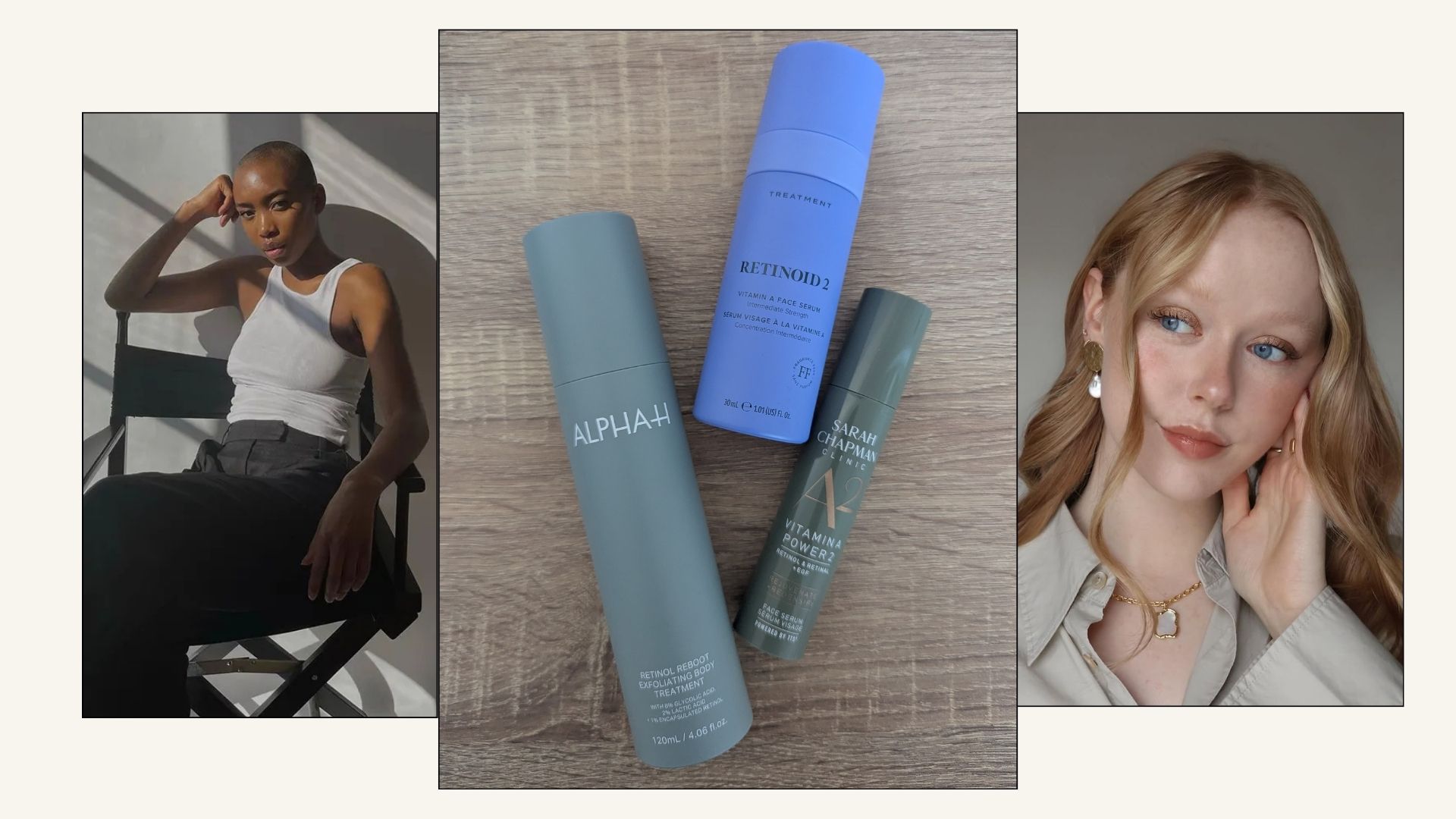
Despite being a beauty editor who has tried hundreds of serums and treatments over the years, I've been afraid of retinol for the longest time. In fact, I've written previously about how I totally avoided it for years after a particularly adverse reaction to a dermatologist-prescribed retinol and only came around when I discovered a certain £20 retinol product that transformed my skin.
I'll be honest, though: When it comes to trending ingredients, retinol has to be up there with one of the most confusing in the industry. Advice varies greatly on when you should start using it, how often you should be using it and where it should sit within your current skincare routine.
But that's about to change. Ahead, I've got the lowdown on exactly what retinol is, why it's the ingredient that I'm recommended most by experts, and most importantly, the best retinol serums to try now.
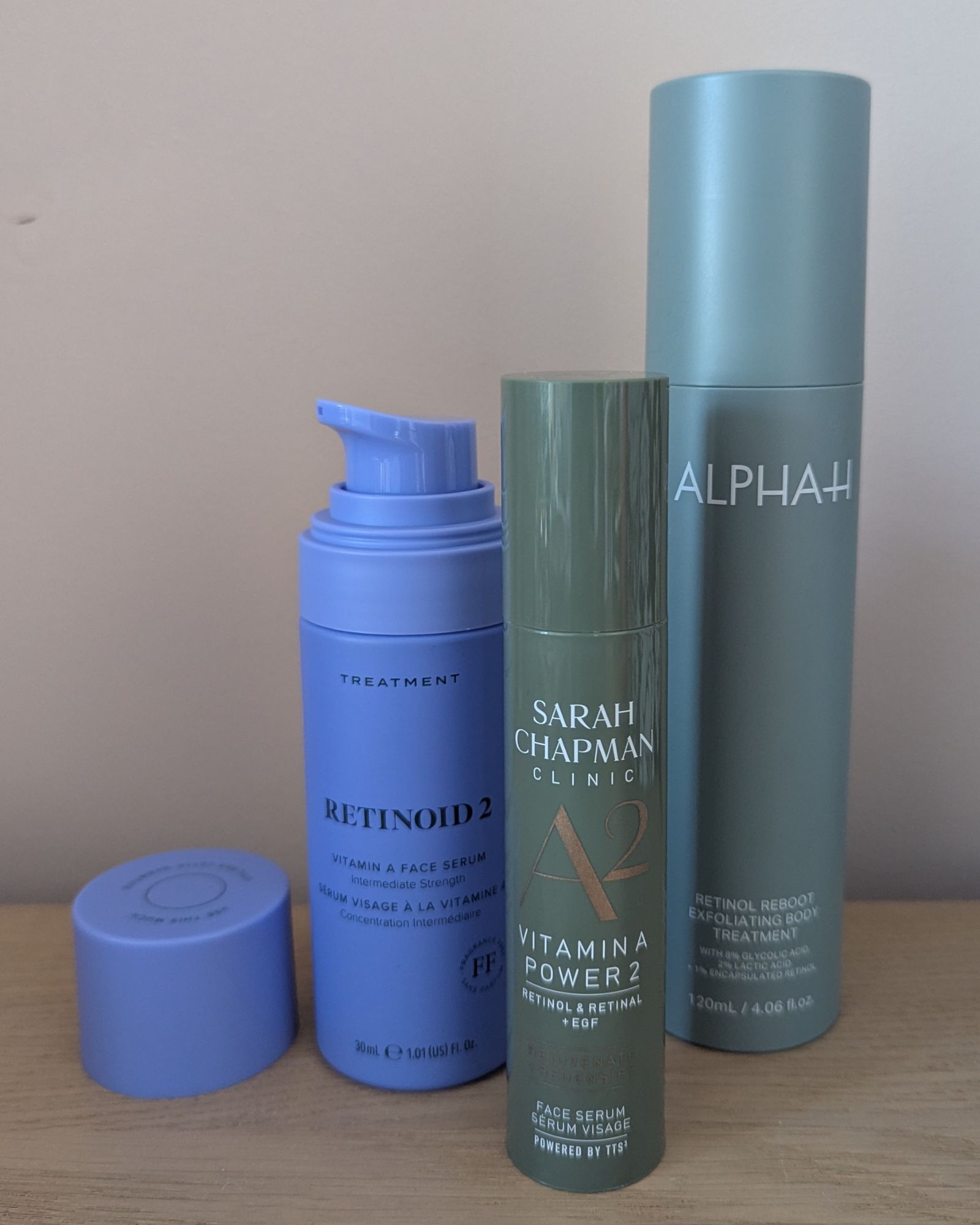
What Is Retinol?
A derivative of vitamin A, retinol is a gentler version of tretinoin—the kind of retinol that you might be prescribed by a dermatologist (and that my skin hated). It's a bit of a does-it-all ingredient, but one of its main benefits is that it speeds up cell turnover to reveal "newer", more glowing skin underneath.
But there's more. Retinol does pretty much everything from minimising fine lines and pore visibility to encouraging cell renewal and diminishing breakout-causing bacteria. It's no surprise then that retinol is one of the most-recommended skincare ingredients and, alongside SPF, has proven to be one of the most effective ways to prevent signs of skin ageing.
When Should You Start Using Retinol?
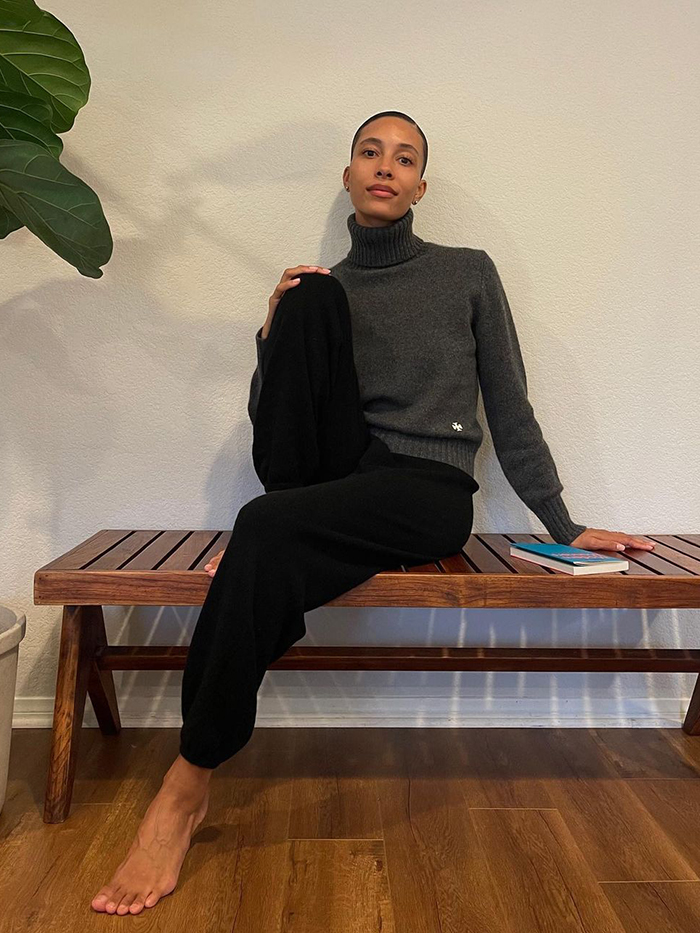
Most facialists and skin experts that I have spoken to recommend that everyone aged 30 and over start using retinol, but if you have specific skincare concerns like congestion, scarring or regular acne breakouts, then it won't do you any harm to start using a retinol serum earlier.
Who Should Use Retinol?
If you do have oily/combination skin, then a retinol serum is ideal, as it's lightweight in texture and won't weigh your skin down. Of course, though, if you do prefer richer formulations, then you can look for a retinol cream or moisturiser instead. (You'll get the same results—it's just down to personal preference.)
Oh, and it's important to note here that if you're pregnant or breastfeeding, then you should totally avoid retinol (including tretinoin and retinal) altogether.
Where Does Retinol Fit In Your Routine?
Retinol serums should always be used at night and applied to clean skin. Our skin works to rejuvenate itself overnight, so adding in a skin-repairing ingredient like retinol here makes sense.
While a lot of retinol serums are coined for daily use, most skin experts recommend that you start introducing the ingredient slowly. Start with once or twice a week for a couple of weeks, and then build it up slowly as your skin adjusts. Keep an eye on your skin—a little dryness or irritation is normal, but decrease the frequency of your application if you notice anything more than this.
You can go straight to bed after you've applied your retinol serum, but if your skin does feel a little tight, then apply a gentle moisturiser afterwards. In fact, if you have sensitive skin, then it's often recommended that you apply a moisturiser first and your retinol serum on top.
The next morning, be sure to apply an SPF as usual.
Ready to find the best retinol for your skin? Keep scrolling to shop the 12 best retinol serums around.
How We Tested
As part of our testing criteria, each of the below retinol serums has been road-tested by a member of theBest Knockoff Luxury Clothing
UK team, who tried each product for a minimum of six weeks in order to give an accurate review of its short and long-term benefits. Below, you'll find our honest and in-depth opinions of 12 bestselling retinol serums across a wide range of price points.
Keep scrolling for everything you need to know about retinol and to find a serum that will work for you.
The Best Retinol Serums 2025
- Best Luxury Retinol Serum: Augustinus Bader The Retinol Serum (£150)
- Best Affordable Retinol Serum: The Inkey List Retinol Serum (£14)
- Best Beginners Retinol Serum: Naturium Retinaldehyde Cream Serum (£32)
- Best Advanced Retinol Serum: Sarah Chapman A2 Vitamin A Power 2 Serum (£115)
- Best Retinol Serum for Mature Skin: Skin Rocks Retinoid 2 (£75)
1. Augustinus Bader The Retinol Serum
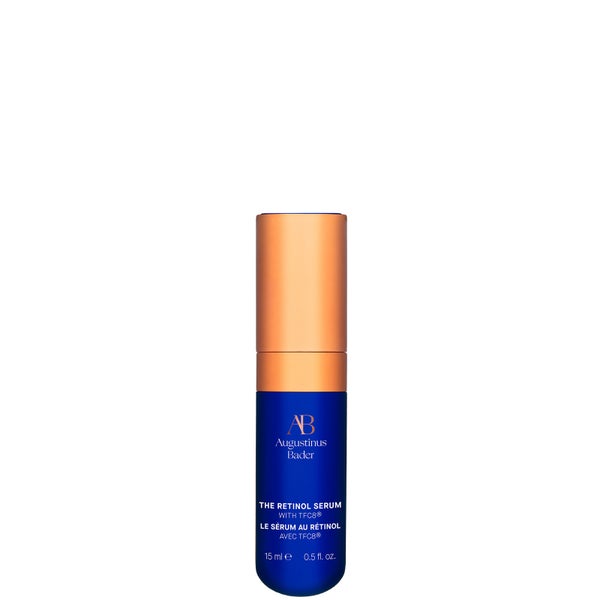
A go-to brand for the likes of Victoria Beckham, Hailey Bieber and Priyanka Chopra, to name a few, Augustinus Bader is known for its potent, high-tech formula. This retinol serum is powered by the brand's TFC8 complex, which guides nutrients to where they are needed most in the skin.
Why it's the best: This serum has a rich, creamy texture that feels luxe and indulgent upon application.
Expert's review: "I tested this retinol over a six-week period and noticed that my complexion had become more even-toned, my pigmentation from hormonal acne breakouts quickly lessened and my skin had tons more radiance. Sold." Eleanor Vousden,Best Knockoff Luxury Clothing UK beauty editor
Pros
- Potent formula
- Luxurious texture
Cons
- It's super expesnive
2. The Inkey List Retinol Serum
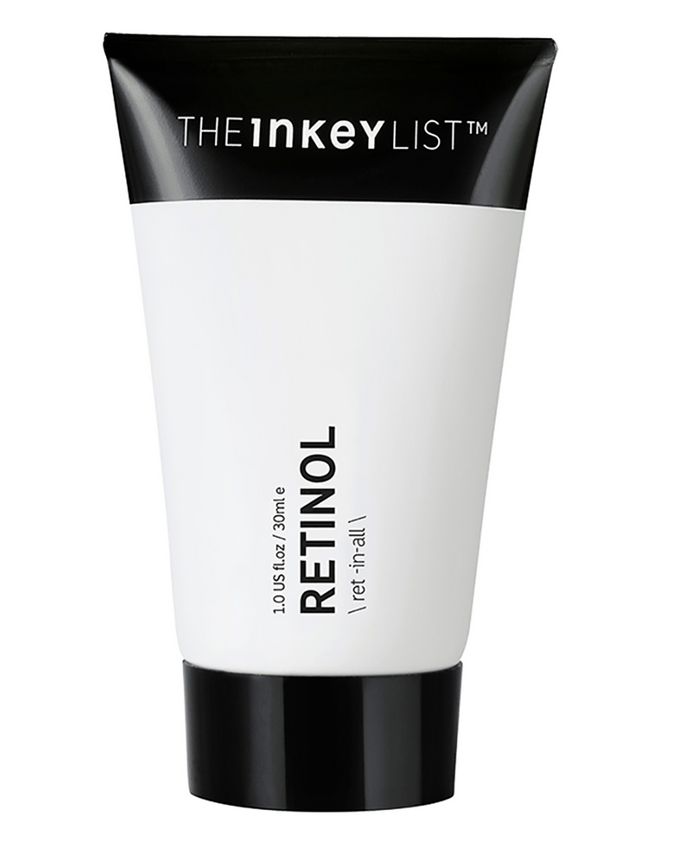
If you're shopping for skincare but don't want to break the bank in doing so, The Inkey List is a great brand to start with. This affordable retinol serum tackles blemishes and evens skin tone over time to leave you with brighter, smoother skin.
Why it's the best: Contains potent and stabilised forms of retinol, but costs just £14
Expert review: "If you want to minimise irritation and redness, opt for a slow-release retinol like this one from The Inkey List. I found that it didn't irritate my sensitive skin, thanks to the addition of nourishing squalane." Mica Ricketts, freelance beauty editor
Pros
- Low price point
- Easy to get hold of
Cons
- May take a while to see results
3. Naturium Retinaldehyde Cream Serum
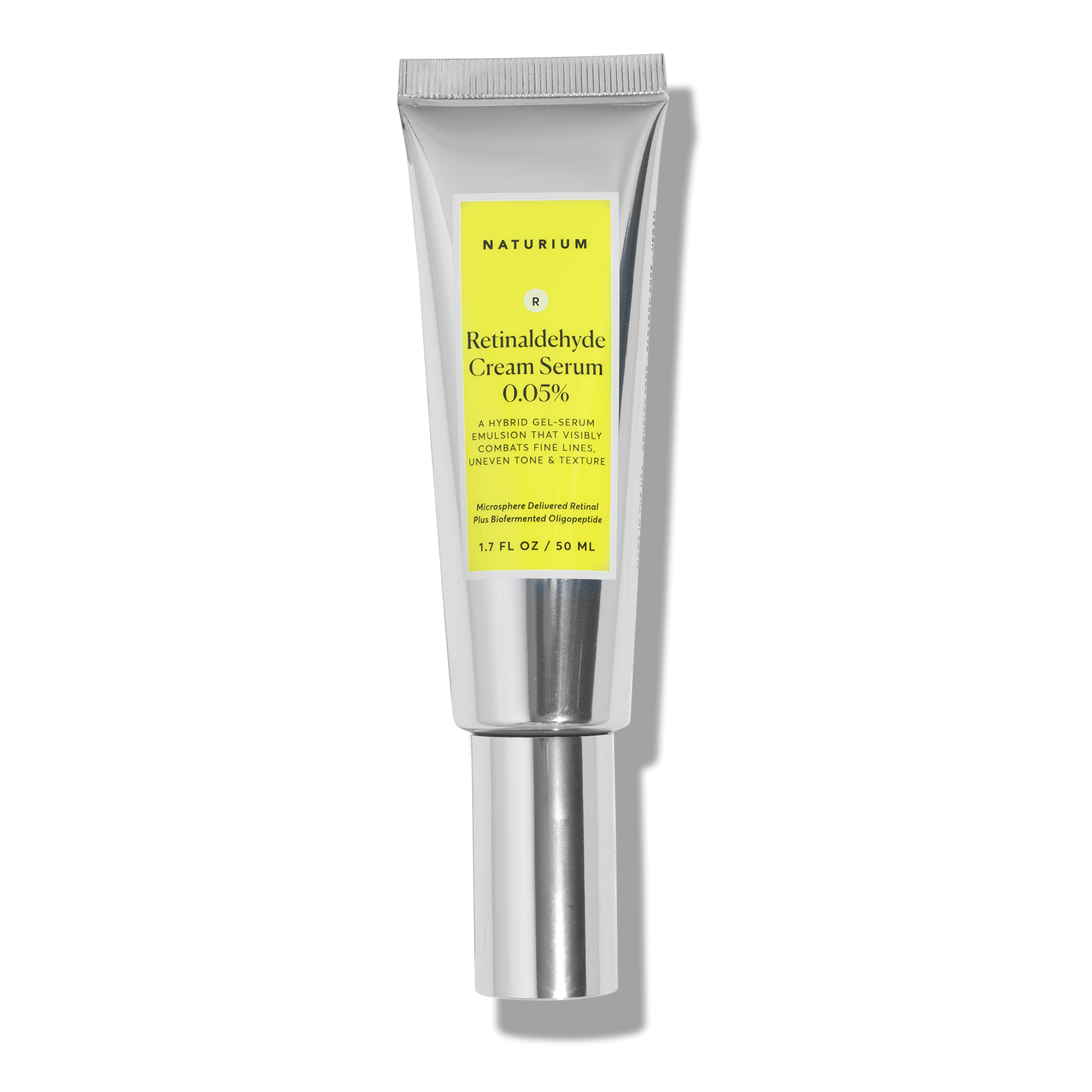
This gentle creamy serum is the perfect place to start your retinol journey. It helps to visibly address the look of fine lines and uneven skin tone and texture without causing any redness, dryness, or sensitivity.
Why it's the best: It utilises a sustained-release retinaldehyde, which means that the usual retinol side effects, such as dryness and irritation, are reduced.
Expert review: "This is one of the best products I've had the pleasure of trying in the last few months. As someone whose skin is blemish-prone, not only has it helped to really clear my skin, but it's also the brightest, smoothest, plumpest and generally happiest it's been for a long time. So much so that my husband has been continually feeding back how good it looks—for reference, he's someone who didn't bat an eyelid at my new curtain bangs. High praise indeed." Mica
Pros
- Affordable price point
- Feels luxurious
Cons
- It's frequently sold out
4. Sarah Chapman A2 Vitamin A Power 2 Serum
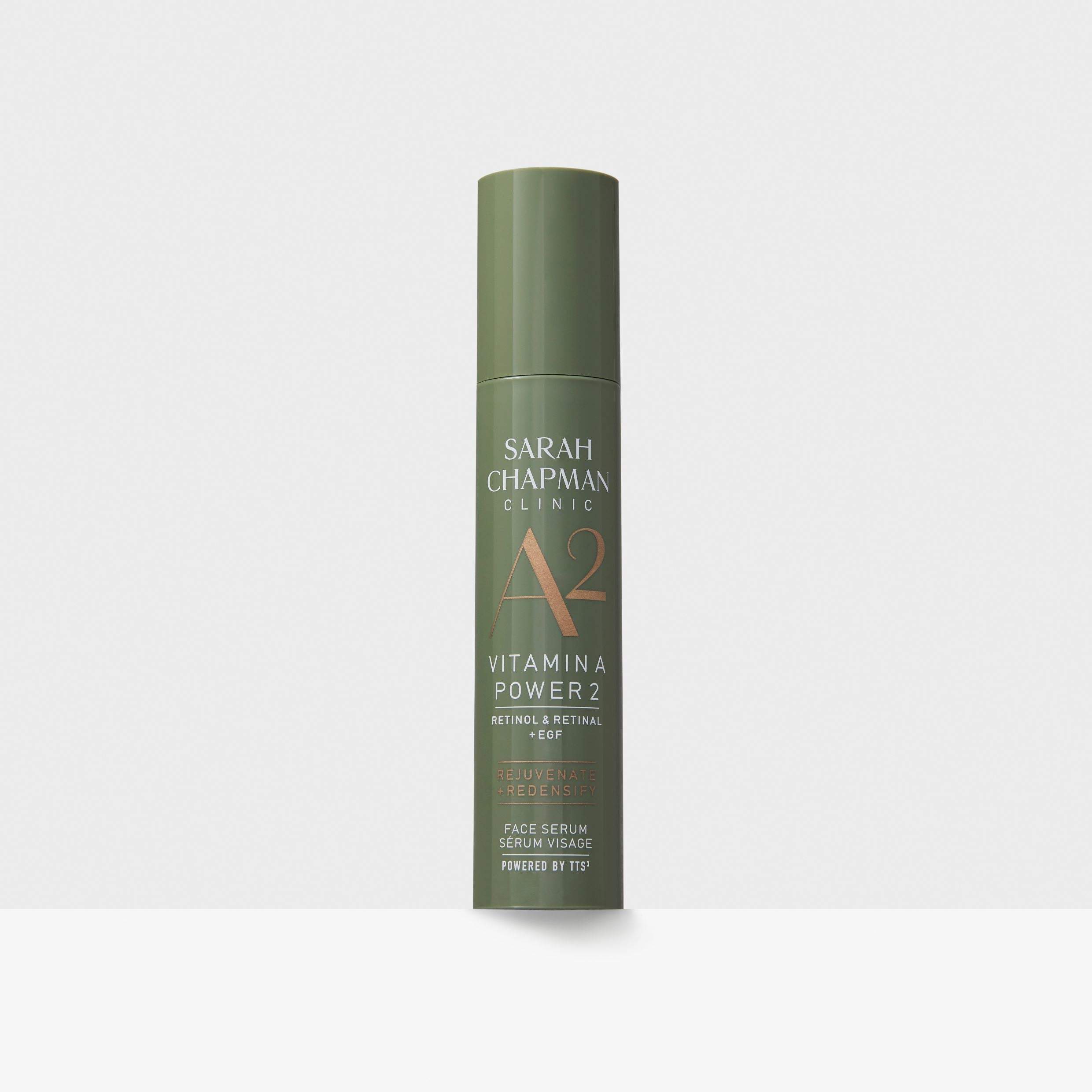
If you've worked your way up through the ranks of retinoids and have stopped seeing results from stronger serums, try this to get back on track. The (already potent retinol) is boosted by TTS³, a delivery system that amplifies its efficacy even further.
Why it's the best: Formulated with high levels of active ingredients, making it well-suited to skin that's already accustomed to using high-strength retinoids.
Expert review: "As someone who has dabbled with prescription retinoids, I'm well versed in the difference between high-strength and low-strength formulas. While stronger retinoids typically come with a host of unpleasant side effects, such as increased dryness and sensitivity, this one, impressively, doesn't. Yet at the same time, it quickly delivers the smoothing, brightening and plumping benefits you expect to see from such a potent formula." Grace Day, freelance beauty editor and esthetician
Pros
- Quick visible results
Cons
- It's certainly not one for beginners
5. Skin Rocks Retinoid 2
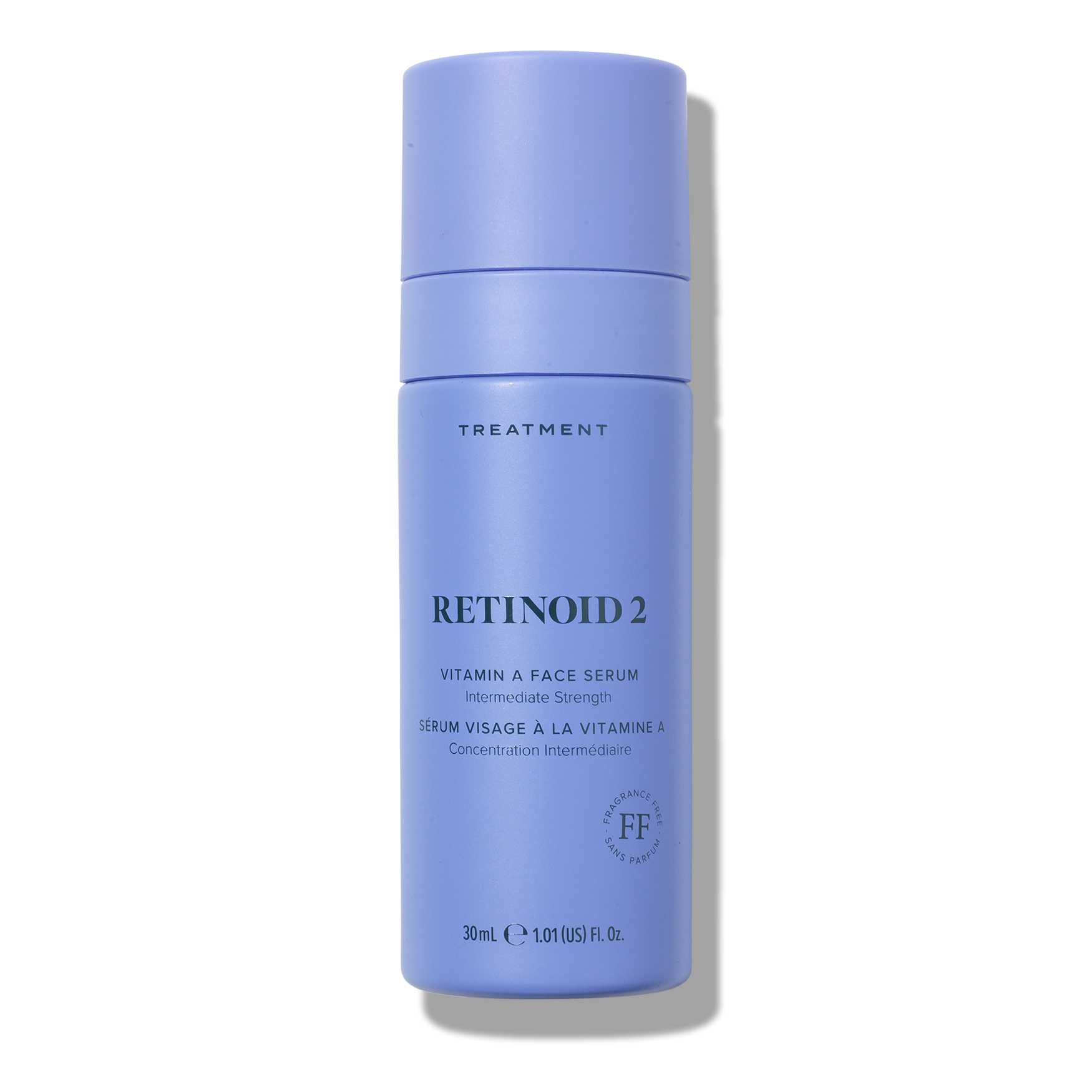
Also developed for regular retinol users, Retinoid 2 is the stronger of Skin Rocks' two formulas. It's specifically developed with mature skin in mind, and is especially beneficial for addressing fine lines and wrinkles.
Why it's the best: Targets common signs of skin ageing, such as fine lines, wrinkles, dark spots and loose skin.
Expert review: "I frequently recommend this to friends and clients who are used to using retinoids but haven't seen results from weaker formulas. It uses some of the most impressive and potent retinoids out there, so you really do see results before you've even finished the first bottle. I have deep lines on my neck, and this has made a huge difference in reducing them." Grace
Pros
- Refillable packaging
- You see visible results, fast
Cons
- Pricey
- Again, it's a potent one
6. Skin + Me Daily Doser
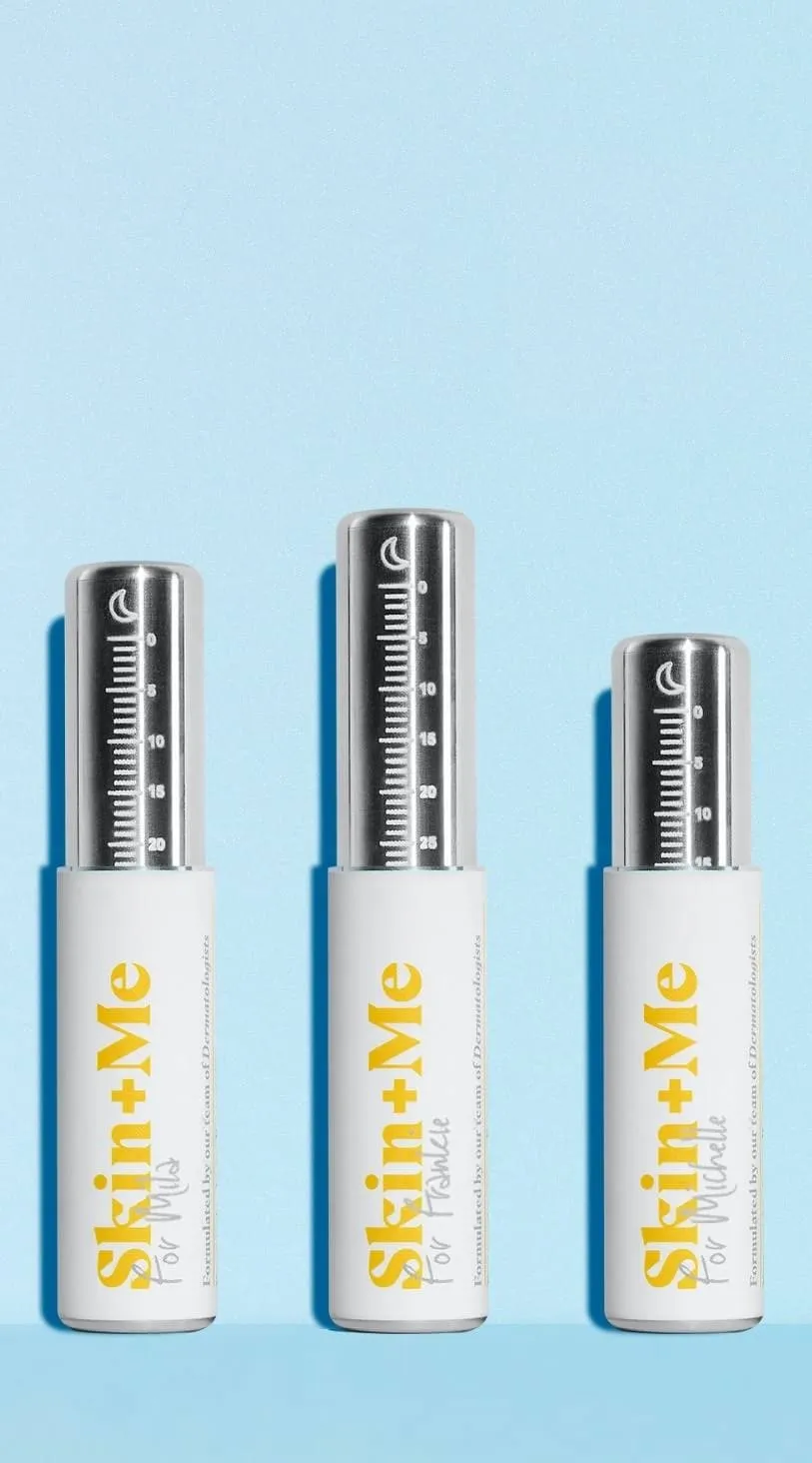
Breakouts and congestion are some of the most stubborn skincare concerns out there, and while anti-inflammatory and cleansing ingredients will help, nothing quite beats a high-strength retinoid. Powered by tretinoin (a retinoid typically only available on prescription), this serum works hard and fast to transform skin tone and texture.
Why it's the best: Specifically developed for acne treatment, tretinoin works by promoting skin cell turnover, unclogging pores, and regulating sebum production to prevent and clear breakouts.
Expert review: "I credit this specific retinol with finally clearing the stubborn acne I lived with since my teens. What's brilliant about Skin + Me is the support and guidance that the brand's experts provide. Your dose starts small and increases gradually so that you can experience the benefits of tretinoin without the unpleasant side effects." Grace
Pros
- Packaging provides a measured daily dose
- Personalised prescription
Cons
- Subscription-only service
7. CeraVe Resurfacing Retinol Serum
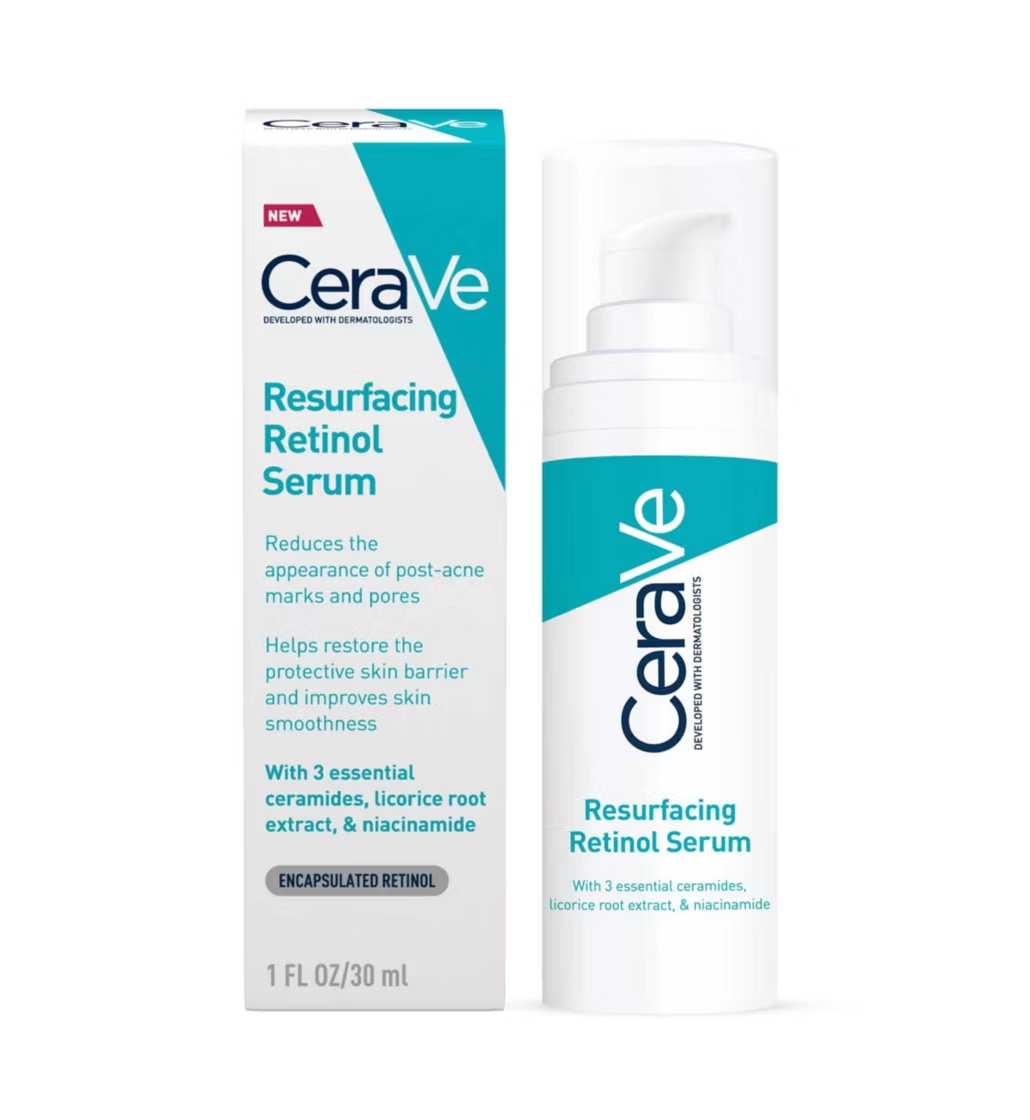
If you are prone to irritation and redness, look no further than this high-street hero. Packed full of ceramides and niacinamide, it is specifically formulated to help skin deal with the sensitising effects of retinol.
Why it's best: Ceramides work to strengthen the skin barrier, preventing dryness and dehydration, and improving skin's resilience
Expert review: "This serum is so thick and creamy that it almost feels more like a moisturiser. It's this nourishing formula that makes it a perfect pick for those who deal with sensitive skin—but you'll still notice the benefits of retinol, especially for dull and textured skin." Grace
Pros
- Affordable price point
Cons
- Small size doesn't last very long
8. Shani Darden Skin Care Retinol Reform
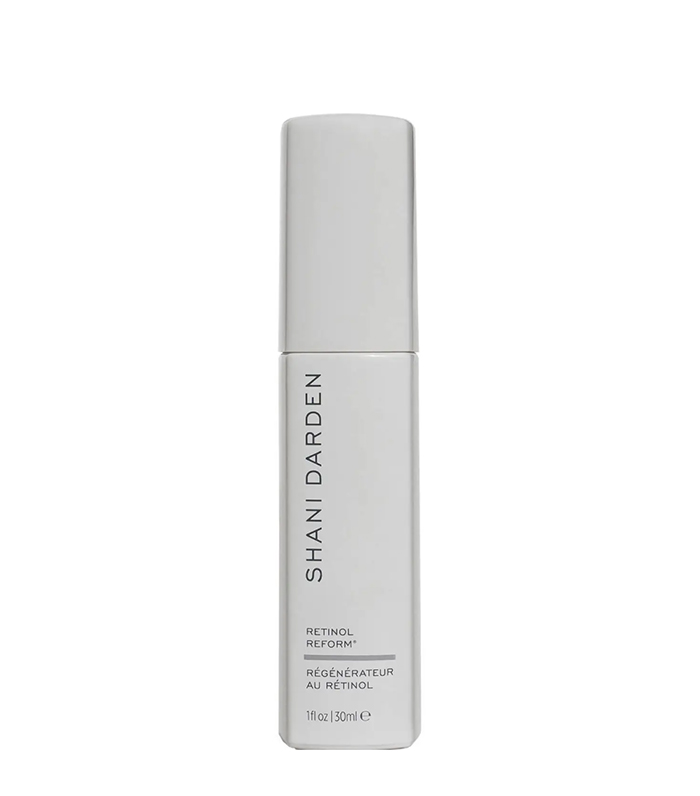
The brainchild of celebrity facialist Shani Darden, this gentle retinol serum is ideal for those who want to experience the benefits of retinol while also addressing key signs of oily skin. Plus, celebrities like Rosie Huntington-Whiteley and Kim Kardashian swear by the stuff.
Why it's best: Alongside retinol, 2% lactic acid helps to promote exfoliation and skin cell turnover, reducing excess sebum, unclogging blackheads, and reducing the appearance of enlarged pores.
Expert review: "I'm a huge fan of Shani Darden as a brand for its effective, hardworking formulations. This treatment is particularly good if you're prone to excess shine and enlarged pores. It also fades dark spots and repairs wrinkles caused by sun damage while building collagen within the skin to make pores appear smaller." Mica
Pros
- Available in two sizes
- Feels super luxurious
Cons
- Often sold out
9. The Ordinary Retinol 0.2% in Squalane
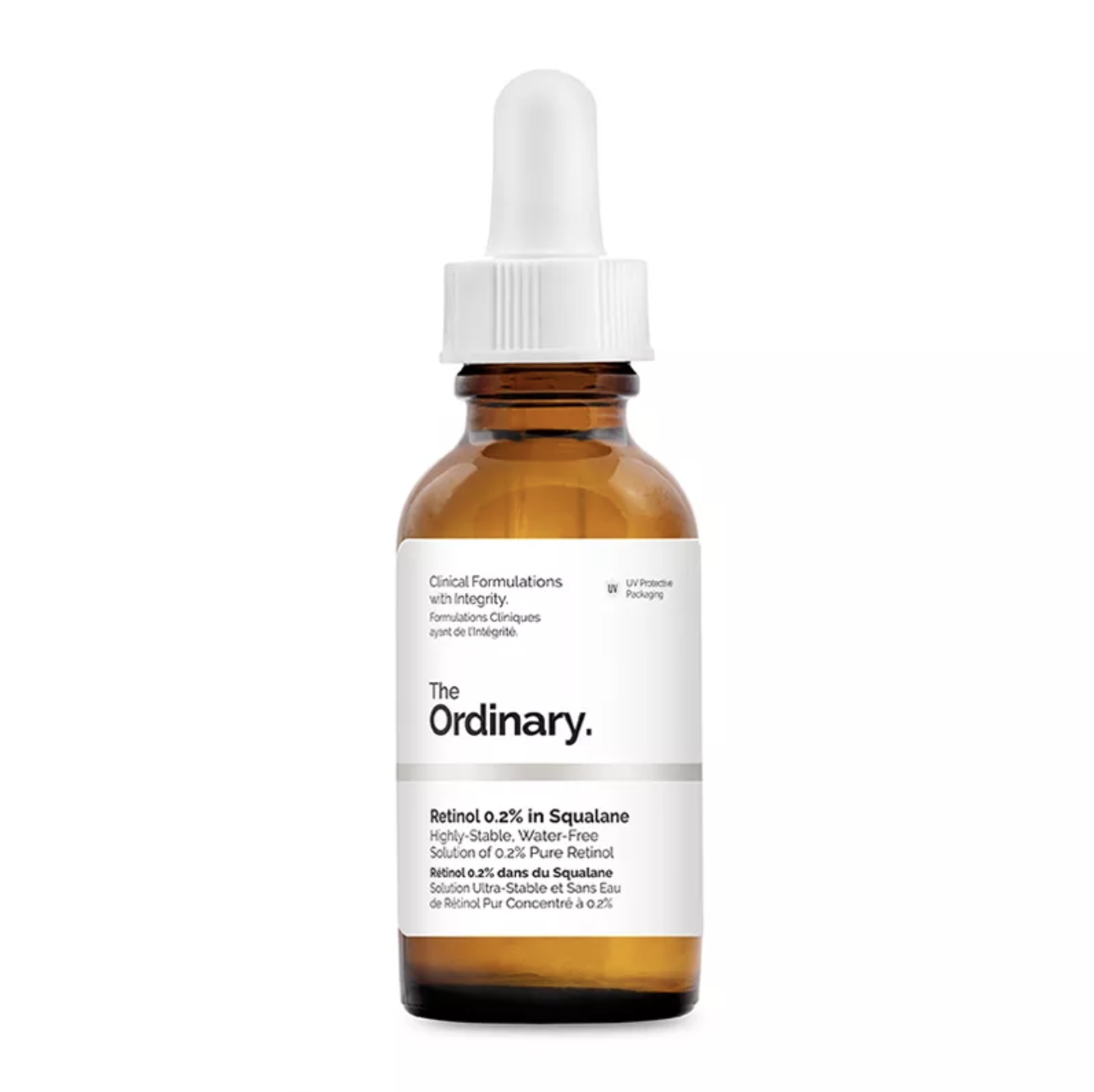
If you have dry skin, then chances are you're wary of dabbling with retinol. You're in safe hands with this gentle formula, which contains just 0.2% pure retinol, so you can get your skin used to the ingredient without causing any dryness or irritation.
Why it's best: The base of this formula is squalane, a nourishing oil-like substance that mimics your natural oils and helps to support your skin barrier in order to prevent and treat dryness.
Expert review: "Retinol does have a bad rep for causing dryness and sensitivity so it's understandable that those who already have dry skin might be hesitant to use it. If that sounds like you, then I'd highly recommend this formula as your starting point. I love how softening and nourishing it feels, thanks to the squalane base—which also makes it a joy to apply by massaging onto skin." Grace
Pros
- Affordable price point
- Does the job fast
Cons
- It's small bottle
- Doesn't feel very luxe
10. Medik8 Crystal Retinal Ceramide Eye 3
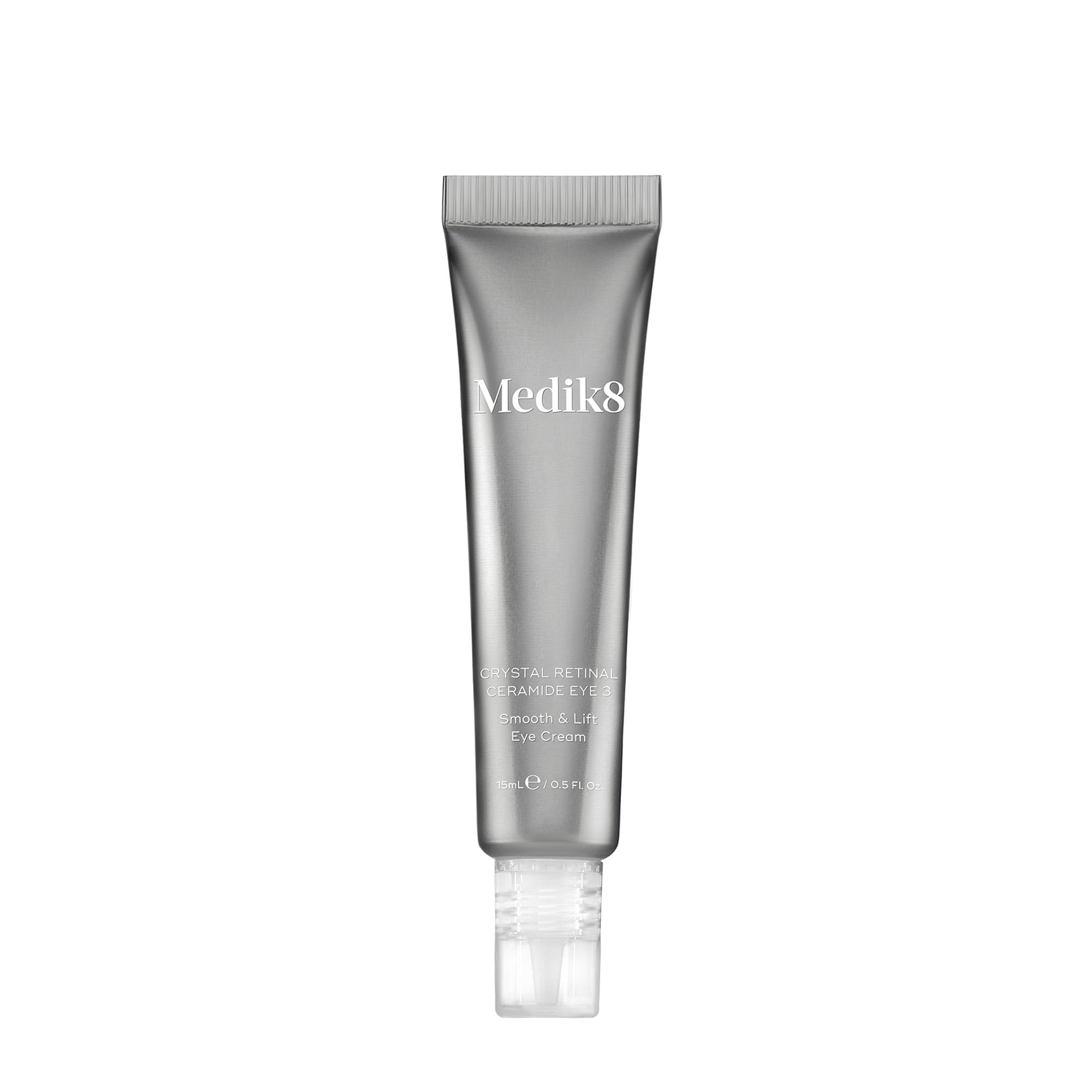
The eye area is delicate and prone to sensitivity, so your regular retinol serum may be too harsh to apply here. But of course, if you want to address fine lines, wrinkles and discolouration in the eye area, retinol really is your best friend. This eye cream combines retinol with ceramides to moisturise skin and strengthen the skin barrier.
Why it's best: Specifically formulated with the eye area in mind in order to deliver results without unwanted side effects.
Expert review: "The eye area is often the first place where people notice fine lines and wrinkles appear so it can be all too tempting to apply your retinol serum here. I was thrilled when I first heard that this product would be launching because most retinol serums are far too harsh for this delicate area. This one is gentle but still potent, so you'll see visible benefits." Grace
Pros
- Available in multiple different strengths
Cons
- Make sure you select the right strength for you or risk overdoing it
11. Alpha-H Retinol Reboot Exfoliating Body Treatment
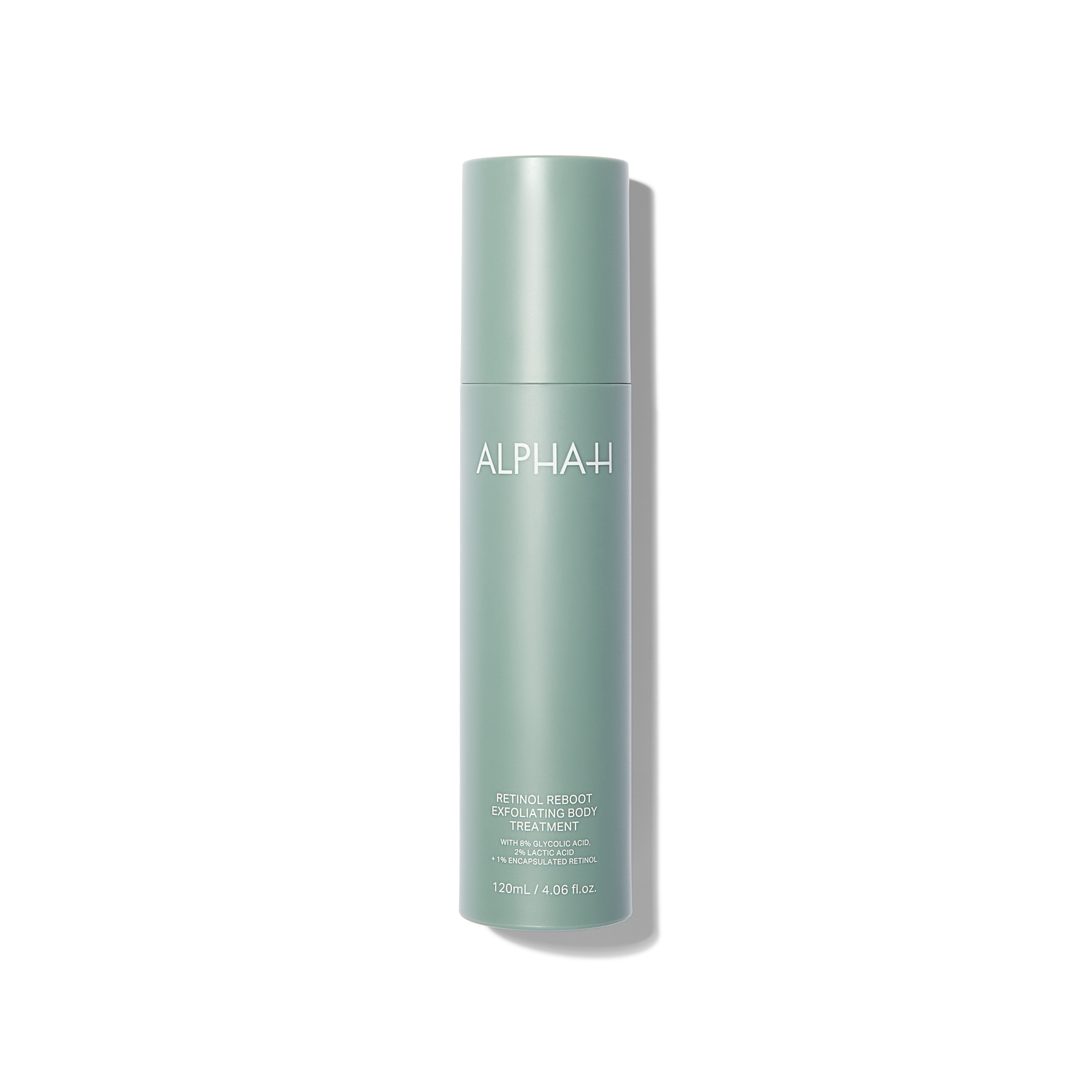
It totally makes sense that the skincare ingredients we use on our faces will also have a multitude of benefits for the skin on the rest of our bodies, too. This serum can be used to address common issues like sun damage on the chest, wrinkles on the neck, and textured skin on the backs of arms.
Why it's best: Targets signs of ageing on the body, such as sun damage, loose skin, and wrinkles
Expert review: "Retinol and glycolic acid combined make for a powerful skin-smoothing and brightening treatment. While the duo would be too strong for use on the face, they're perfect for the thicker skin of the body, where issues like bumpy skin and sun damage can be more evident and stubborn. This has become a staple in my bodycare routine, especially ahead of the summer months." Grace
Pros
- Easy to apply
- Feels like a real treat
Cons
- It has quite a strong smell
12. Beauty Pie Youthbomb Extreme Retinal Triple Renewal Serum
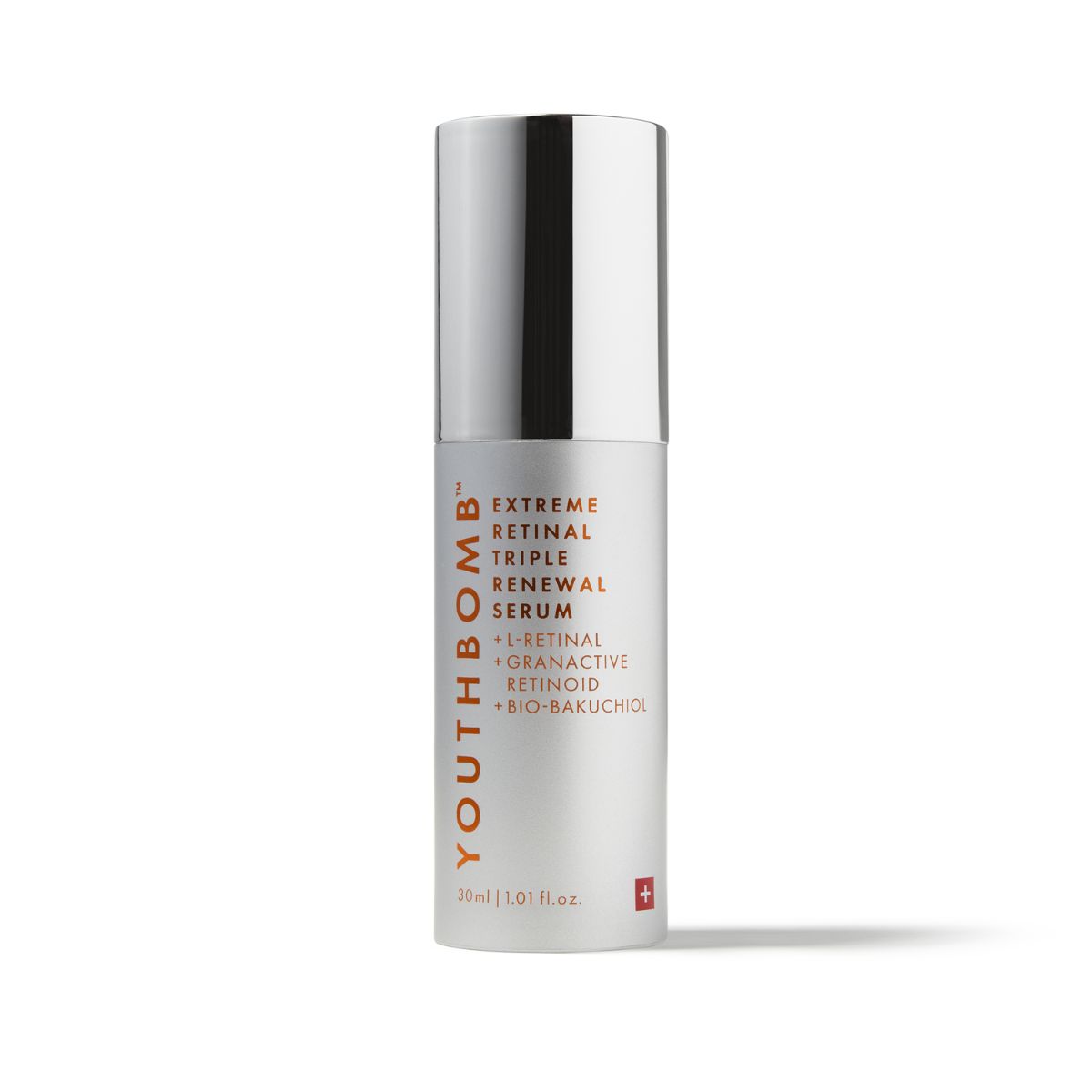
Packed with a triple retinoid complex, Beauty Pie's newly launched retinal serum is as supercharged as a retinol serum gets (without opting for a prescription formula). Inside you'll find encapsulated L-retinal and granactive retinoid, which work hard to stimulate cell turnover and bio-bakuchiol, a plant-based alternative to retinol. This trio works in harmony to even skintone, fight fine lines and leave skin looking bright and glowy.
Why it's the best: High-powered ingredients housed in a lightweight, creamy lotion.
Expert's review: "This is not a serum for retinol beginners. If, though, you are ready to take your retinol usage to the next step, this will be for you. It feels silky on the skin, adds immediate glow and generally leaves me waking up with a more radiant complexion every single day. My skin hasn't looked this good in years." Shannon Lawlor,Best Knockoff Luxury Clothing UK Beauty Director
Pros
- Contains multiple types of retinol
- Provides skin with instant glow
Cons
- Must be a Beauty Pie member to shop the reduced price (£82 for non-members)
Why Trust Us
AtBest Knockoff Luxury Clothing UK, we know that beauty isn’t one-size-fits-all. Our editors have tested thousands of products over the years—spanning skincare, makeup, hair and nails—and work closely with trusted experts including dermatologists, makeup artists and leading industry insiders to ensure every guide is well-researched, inclusive and relevant to you.
We focus on formulas that deliver, whether they’re affordable favourites or luxury investments. Our product selection is based on tangible results, ingredient know-how and what we’d truly recommend to a friend.
Mica Ricketts is a freelance beauty editor, copywriter and regular contributor toBest Knockoff Luxury Clothing UK. She also writes for titles including Marie Claire UK, Refinery 29 and Cosmopolitan, and previously worked atBest Knockoff Luxury Clothing UK as Beauty Editor. With experience in both editorial and content management, she also works with beauty brands and small businesses on brand messaging and content strategy. As a busy mum of two, she is passionate about finding efficacious beauty products that can disguise all signs of tiredness with minimal effort.
- Grace DayFreelance Beauty Editor
